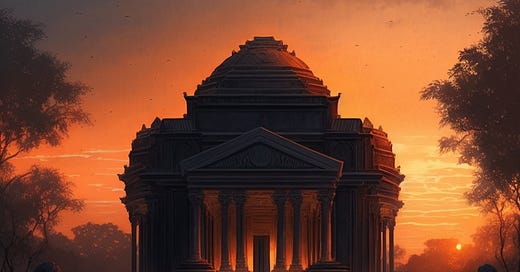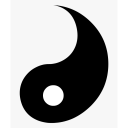One plague of the current times is that an extraordinary number of human beings lack a sense of free will. In some senses, this is baffling given that in 2023 AD, it has never been more safe nor more expedient for someone to stamp themselves out onto the world.
There are some who would even try to argue that free will doesn’t exist. I, for one, think such arguments are lunacy1 – even if they come from a disciplined experiential awareness – though I’m sure I could get a lot of amusement by attempting to validate that perspective.
It recently occurred to me is that the phrase “free will” is one of the most interesting phrases. Don’t you think so? After billons of iterations of creations, the Creator finally begot the human being, and awarded him only, out of all the other creatures, “free will”.
The Avatar and The Fire Lord
Avatar: The Last Airbender provides a rich case study on free will. The entire story begins because of a rupture in the relationship between the Avatar and the Fire Lord. From one angle, the mass genocide and great war that follows is a tragedy that must be fixed to restore balance. From a different angle, the entire telos of the adventure is a divination on how “free” and “will” dissociate, and what occurs to bring them back into each other again.
To review briefly:
Air is the element of freedom and detachment
Water is the element of change and adaptation
Earth is the element of substance and endurance
Fire is the element of drive and desire
The seeds of conflict come from Roku failing to enforce a check on Sozin (rejection of “will”) and Sozin pursuing expansion through conquest over conversion (rejection of “free”).
The disintegration of these two primary forces continues into their next lifetimes. Aang – an airbender – spends a majority of his youth avoiding the responsibilities of a sovereign; namely, to develop the capability to bring the world under his influence (rejection of “will”).
Similarly, Zuko – a firebender – from childhood is trapped in machinations of a brutal dynastic tyranny, and continues manifesting this pattern well into teenage-hood. He directs all of his energy toward fulfilling someone else’s directive, never considering that he has agency over his destiny (rejection of “free”).
After hitting a low point, both of these individuals begin to undertake the other half of the sacrament that they disowned, inevitably drawing them closer together in personhood and in purpose. The contours of saga demonstrate that what was previously a fissure in the fundamental dharma of a person,/group/society comes to repair by re-integrating the fragmented aspects.
Freedom From Power
This can be explored in two ways. First, freedom (as an experience) is generated from power.
One must first create the space in which to enjoy movement. This is an intentional act – though maybe unconscious. If you enjoy the liberty to move about a space which you had no hand in creating, you are only borrowing. You are enjoying the liberty of another, who deployed their power toward maintaining a space in which you may take up what they give you.
In political terms, this is why libertarianism as a philosophy is often considered naïve – it is excessively focused on negative reality, and does not contend with the primacy of positive will. It is only by exercising positive will, that potential is liberated.
This reveals that, second, freedom from (another’s) power comes only when using your own power. This is a lesson easily learned when grappling with an opponent.
Unless you are generating momentum against your adversary, you are not free. Either you and your opponent are in stasis, or you are responding to momentum generated against you, which is a type of entanglement.
If you are subjected to another’s momentum, reclaiming freedom is neither to give in nor to fight against; in fact, the latter will be leveraged by a skilled practitioner to entrench you deeper. The solution to restoring freedom is to neutralize the other’s momentum; once broken, you can generate your own momentum against them.
Power By Freedom
This, also, can be explored in two ways. Power (as an exercise) is generated by freedom.
Acting with great force according a machine’s instructions is not an instance of exercising your power. It only increases the power of the machine. In other words, any drive actualized not from your own choice, but borrowed by another, increases their dominion, not yours.
An effective teacher will give you the opportunity to create freely. This freedom, used to create a beautiful artifact, strengthens your own artistry. At the same time, it bolsters the sovereignty of the teacher who has now produced further value – through you (the creator) and the artifact (the created).
This reveals that, second, power by (another’s) freedom comes through generating your own freedom. Similarly, deploying your own power freely to expand another results in an expansion of both you and that other.
This is why authoritarians are always the architects of their own demise. While accumulating enormous dominance, they fail to direct it in a way that expands. Instead, by using power to suffocate others, they reify the nature of power as suffocation, and eventually suffocate themselves.
The best way to use power is to orient it toward a well-ordered good, and drive others to participate in the manifestation of that good through free involvement: conversion, not conquest.
Both Together
Thus, the highest human end is neither “free” nor “will”, but both together: free will.
Caveat: I’m sure if I engaged in a good faith discussion with Sam Harris, we would actually come to agreement in the truth of our understanding. I just enjoy to opportunity to counter-signal him.








